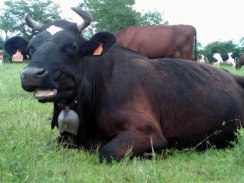 WWOOF, formerly known as Working Weekends On Organic Farms, then Willing Workers On Organic Farms, but currently stands for World Wide Opportunities On Organic Farms. It started in England in 1971 and has been gaining popularity around the world ever since. In exchange for learning experiences, food, and shelter (though this is flexible and many farms ask volunteers to bring their own tents) WWOOFers voluntarily work on organic farms or ecological building projects. You can WWOOF on your neighbor's farm or you can WWOOF on the other side of the world. There is often an element of cultural exchange as well as agricultural. It allows city-dwellers to experience a different lifestyle and deepen their understanding of their food sources, potential farmers to "test the waters" and gain ideas, and current farmers to see different types of farms and methods. 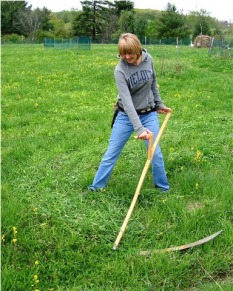 Having spent two summers indoors working at a (delightful, admittedly) bookstore, I was deeply missing my rather idyllic summers spent on my family's small farm. But I wanted to add a greater sense of adventure to my summer now. At college I had begun studying French and had also met a couple of people who had "WWOOFed" in Germany and California, so I decided that WWOOFing would be an excellent way to improve my French skills, try something new, and return to my farming roots. I began browsing the WWOOF: France website in search of farms with kind people and interesting projects. 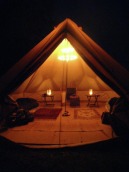 I was fortunate to stay with three wonderful families for two weeks each. The first was a small farm with a Scottish family, consisting of a mother, father, and three home-schooled children, bought only two years prior to my visit. Their focus was on living self-sustainably and this permeated every aspect of their life. I slept in an enchanting yurt furnished with a few stuffed animals the children had provided for our comfort and with what we, the Parisian WWOOFer and I, deemed a candelabra. 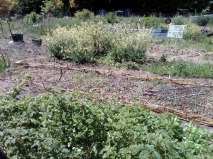 The other WWOOFer and I normally worked together on various tasks for 3-5 hours each day. The nightly animal chores, which consisted of caring for their two pigs, three geese, four sheep, and five chickens, were quickly adopted into our routine, as well as planting a field, digging new garden beds, watering and planting the plants in the greenhouse, and fashioning “willow waddles”-small fences around garden beds made from willow branches woven together- "to stop the chooks (chickens) from scattering all the mulches." 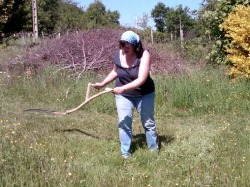 I chose to WWOOF in France in order to practice my French, so it might seem odd that I stayed with a Scottish family, but their description on the WWOOF France website explained that they were interested in learning to use a scythe. Living with perhaps the most respected scytheman in the United States, I thought this would be a good exchange in skills. After I had been there one week their scythes arrived, and I was able to pass on what little knowledge and skill I possess of the subject. It was very strange to be the one instructing, but with modern technology a phone call or email home quickly clarified whatever questions I had. After two weeks (and a teary parting) we said goodbye, and I began on a rather long and confusing day of traveling (there was a fire in a train station, causing delays etc.) to the second farm—a dairy farm with about 65 cows that were milked twice daily. Immediately I noticed a different atmosphere; there was a mother and father, but their four daughters were between 16-21 and rarely at home. The parents only spoke French and, while this was definitely beneficial for my practice, sometimes I had trouble communicating. This really made ordinary events quite exciting, as I often had no idea what was about to happen. I was reminded of an essay David Sedaris wrote entitled “In the Waiting Room,” about his mishaps resulting from misunderstanding the French language: “Every day was a new adventure!” 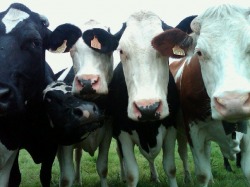 A normal day began at 6:45 AM, to bring the cows “home” (i.e. milking shed/laiterie) We normally finished milking around 8:30, had breakfast, and began cleaning the “laiterie” at 9. I did various jobs with the gardens and fences until 12:30 when we ate lunch. I usually had free time until 5, when we milked again. Several days they asked me to help them in the afternoon with tearing down a very old brick house, from which each brick had to be cleaned and neatly stacked in order to be sold, or something. We always ate dinner after 8—once after 9. This is strange for an American, and they were very surprised when I said I eat around 5 normally. I had previously noticed in Paris that most restaurants didn’t even open until 7:30, and I've figured out that this cultural difference is mainly split along Catholic/Protestant lines. 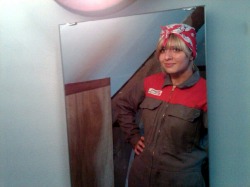 Everyone seems surprised that I actually milked cows while volunteering/working on a dairy farm, but indeed, I fully participated. They used machines of course, and could milk 12 at one time, but there was a lot of human involvement. I even became habituated to having cow poo splattered all over me. We also gave bottles of milk to the calves which we had (rather tragically, in my opinion) separated from their mothers. Somehow I never got a picture of me with the cows, unfortunately, but here is me in my milking outfit, which I adored; I felt very Rosie the Riveter-esque. 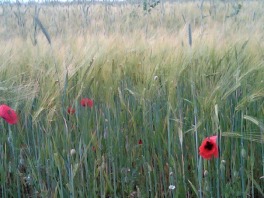 One of the daughters was home for several days and brought me hiking and biking during my free time. Now, I did not learn to ride a bike until I was 12, and I’ve never been particularly keen on this mode of transportation. I go very slowly and panic whenever a car drives by, imagining my tire slipping on a rock and my flailing body being thrown under the wheels of the passing car, but I agreed to climb on the frightfully crickety old bike anyway. I am extremely thankful that I did, because I saw the most beautiful scenery of my life on that four hour ride. 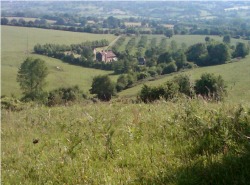 Again, after two weeks and a sentimental goodbye I was navigating the French transportation system once more. (Somehow my hour and a half bus ride to the train was free, which continues to baffle me.) The final farm I stayed on was, like the first, very newly purchased and not yet producing for more than their family, which consisted of a mother father and two small children. They have a herd of cows for meat, which took absolutely no work while I was there, and a herd of the sweetest animals I have ever met—goats. They are the sweetest, most intelligent, and most entertaining animals in existence, I believe. You can bring them food, and they ignore it, because they’re just so excited to see you, instead preferring your love, pets, and attention. Their milk, cheese, and soap are absolutely delightful, and, in my opinion, superior to that of cows. Also, they are much cleaner, and it is easier to take care of them. The family was technically the owners of five sheep, but a few days before I arrived they had escaped. We spent many hours searching, finally finding them, tying their legs together and placing them in the back of a Jeep to bring to another farmer whose patience had not yet been exasperated by the creatures. As I work in a bookstore, I found this scene very humorous because of the popular children’s book Sheep in a Jeep, by Nancy E. Shaw. Unfortunately, “Les Moutons dans une Jeep” was not nearly as catchy or entertaining to my companions. 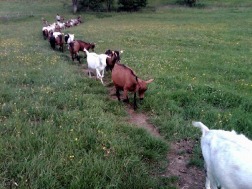 Once a week my host volunteered to do the milking on a larger and longer established organic goat farm nearby in exchange for goat feed, mentoring, and all the (delicieux!) cheese the family could eat. They had many goats and therefore used a milking machine. This was very interesting in comparison to the cow farm where I had previously been. I noticed how much cleaner goats are, which really is a result of solid vs. liquid poop. They also were much calmer around the machines and people. Despite there being so many goats, they were very well socialized and friendly. Because I was so interested, I was allowed to return another day to "help" (see and learn really, but give help when I could) with the making of the cheese. We also agreed to run the booth at a "saloon biologique," which was like an alternative market. We sold delicious cheese, as well as wonderful soap made from the goats' milk. It was an extraordinarily old (and COLD) building that had been used as the marketplace centuries ago. There was a wide variety of goods other than food, including cool backpacks and bags made from organic fairtrade cotton, companies who install solar panels, and much more. Another benefit of WWOOFing is the cool experiences brought about by free time! Whether alone or with the help of the families, I saw some amazing sights and had once in a lifetime experiences. I spent several days in Paris, which, needless to say, was an extraordinary cultural experience. I was treated to a couple of days by the sea, visited many beautiful towns, and enjoyed various markets which the French are so famous for. The final picture below is of one of my new best friends. He is 6 years old, fairly patient with my French, Star Wars obsessed, and absolutely fabulous. He never seemed to register that I was a foreigner, which was very pleasant. Whenever we both had free time he would invite me on some adventure outside, including but not limited to: picking cherries (for which he very kindly provided me with a helmet), playing “cache-cache” (hide-and-go-seek), cutting hay with his “saberlaser” (lightsaber), and exploring the woods. For my final day the family treated me to a day at the sea, and he and I were the only swimmers apart from the jellyfish. He memorized (part of) my address (Ariana 1900 USA) so he can visit me someday, and told me I was welcome at his house whenever I wanted. Indeed, I intend to visit them again. I feel as if I have another home in France now, and I would not trade my experience for anything. I am so grateful for the people I met, the experiences I had, and all that I learned while WWOOFing. Thousands of others have had similar experiences in 99 countries around the world. As a result of my great experiences and encouragement, my father registered our farm through WWOOF-USA as a host. I know it will be great to have others helping around the farm, and I also know that there is a lot to be learned from Mystic Prairie Eco-Farm.
10 Comments
Sounds really great experience, do you know the actual ingredients for goats soap, the milk I think is only a small part? Consistency of cows shits varies ally depending on what u feed them, pretty obvious really, fed on dry hay only the shits are much firmer amd don't splatter :)
Reply
Emmanuel
11/8/2010 05:14:41 pm
I also love France :-)
Reply
Amanda
3/9/2011 08:50:12 pm
Hi Botan,
Reply
Botan Anderson
4/11/2011 03:07:30 am
Ariana wrote this article for my blog, but if anybody wants to ask her questions about her trip, I will forward them to her.
Reply
Guy
1/18/2012 02:47:17 pm
Hi Ariana, I am starting my first wwoofing experience this year with a cycle touring trip around the coast of europe. I sent my first email to a host last night and it seems that it may well be to the first, Scottish, family you mentioned. Your experience make it sound like a good first choice. Could I ask you for the details of your third farm please. If on my route, that sounds like a wonderful place too. Thank you
Reply
Alison
1/18/2012 11:11:10 pm
Yes, what wonderful tuition we had. Last year we used the scythe a lot, even harvesting our buckwheat with it. We now have goats too (for milk and cheese, plus bramble clearing) and I can totally relate to what you say about them. Only my beloved geese come close to being so personable.
Reply
François
12/1/2012 08:23:12 pm
Nous sommes très content d'avoir participé à la réussite de ton voyage en France et que tu as apprécié ce court séjour dans notre ferme normande.
Reply
lizzy
4/9/2013 04:26:43 pm
Hi Botan and Ariana,
Reply
Your comment will be posted after it is approved.
Leave a Reply. |
Botan AndersonArchives
March 2023
Categories
All
|
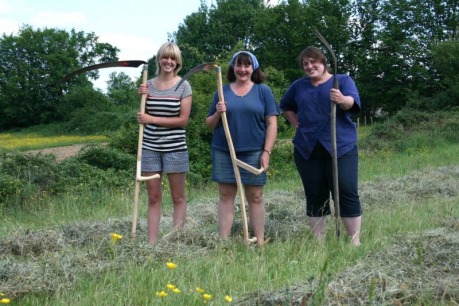
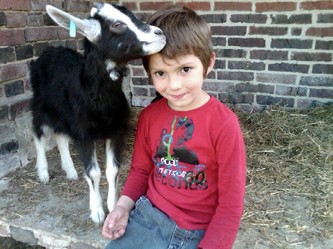
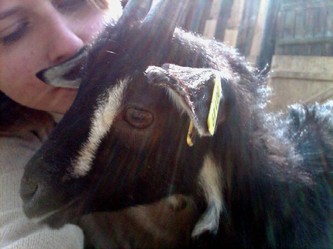

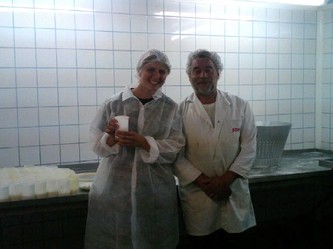
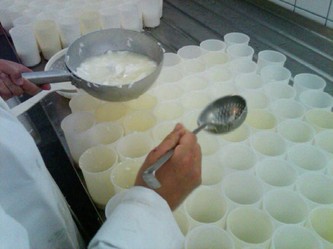
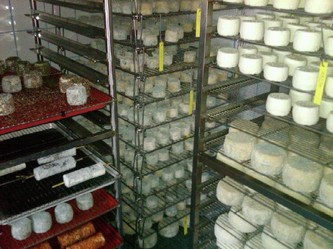
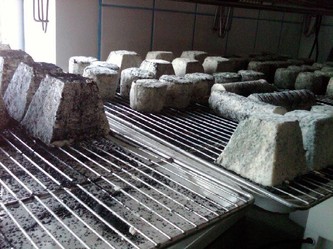
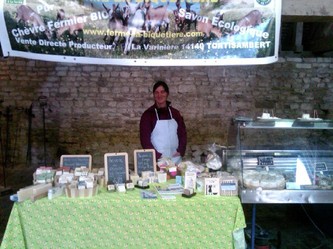
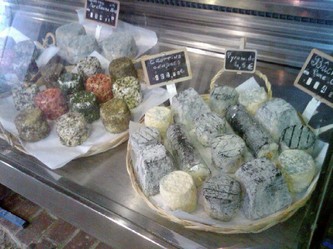



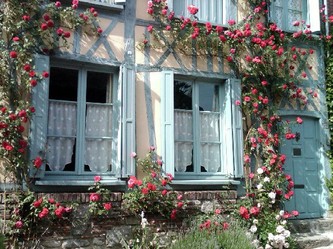
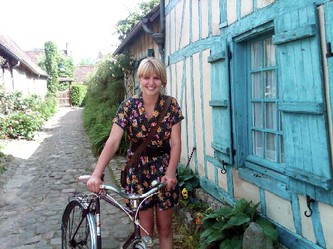


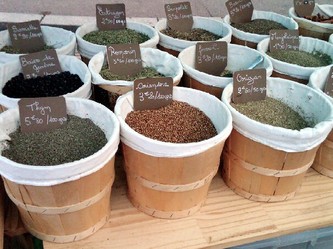

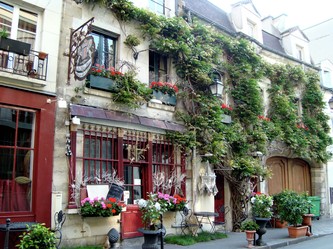
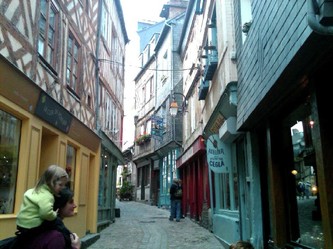
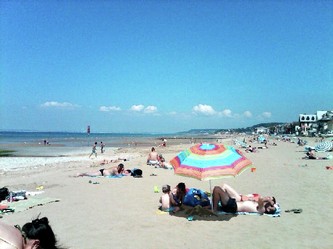
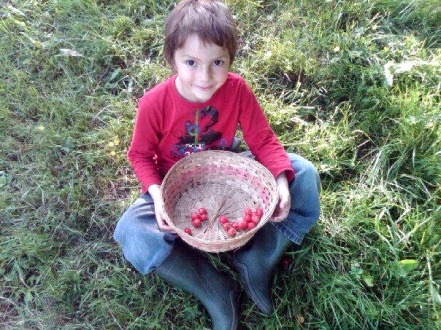
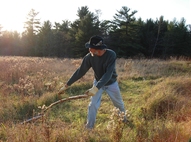
 RSS Feed
RSS Feed